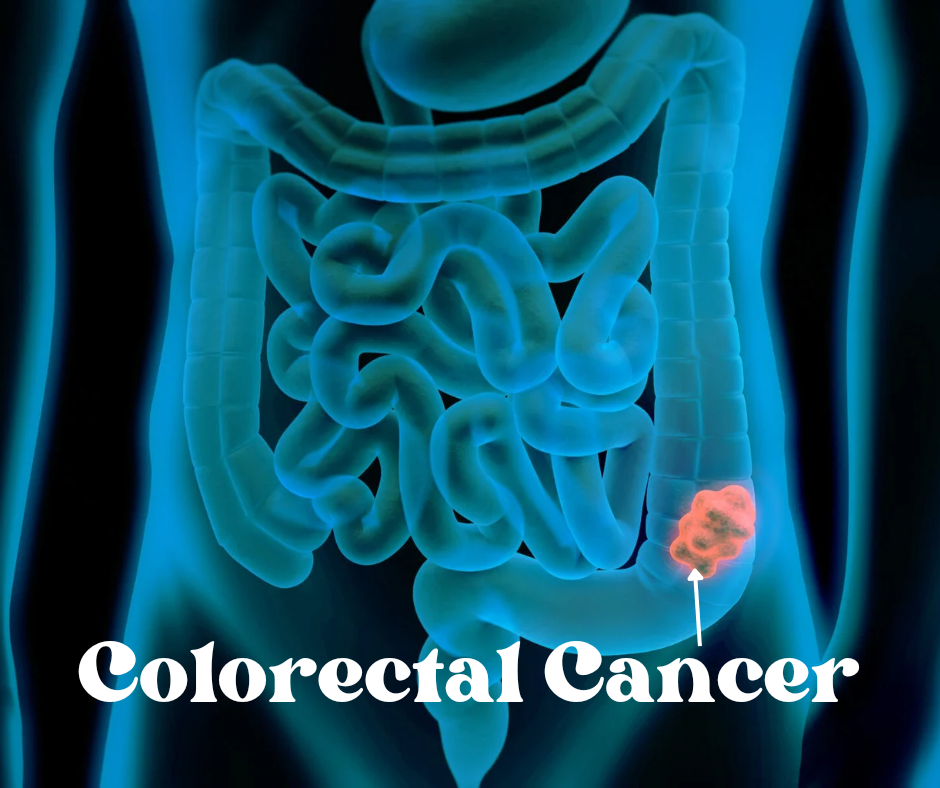Colorectal Cancer: Knowledge, Awareness, and Action

Colorectal cancer, also known as colon cancer or rectal cancer, is one of the most prevalent and potentially deadly forms of cancer. It affects the colon and rectum, which are crucial parts of the digestive system. While the idea of cancer can be frightening, understanding the basics of colorectal cancer can empower you to take preventive measures and detect it early when treatment is most effective. In this blog post, we will explore the symptoms, risk factors, and prevention strategies associated with colorectal cancer.
Understanding Colorectal Cancer
Colorectal cancer occurs when malignant cells develop in the lining of the colon or rectum. It typically starts as noncancerous growths called polyps, which can become cancerous over time. If left untreated, these cancer cells can spread to other parts of the body, making early detection and treatment crucial.
Symptoms of Colorectal Cancer
- Change in Bowel Habits: Persistent changes in bowel movements, such as diarrhea, constipation, or a change in stool consistency, should be a cause for concern.
- Rectal Bleeding: Blood in the stool or bleeding from the rectum is a common early sign of colorectal cancer.
- Abdominal Discomfort: Frequent abdominal pain, cramps, or discomfort that doesn’t go away should not be ignored.
- Unexplained Weight Loss: Losing weight without a clear reason could be an indicator of colorectal cancer.
- Fatigue: Chronic fatigue or weakness may be a sign of advanced colorectal cancer.
Risk Factors for Colorectal Cancer
Several factors can increase an individual’s risk of developing colorectal cancer. These include:
- Age: The risk of colorectal cancer increases with age, with the majority of cases occurring in individuals over 50.
- Family History: A family history of colorectal cancer or polyps can elevate your risk.
- Inflammatory Bowel Disease (IBD): Conditions like Crohn’s disease and ulcerative colitis can increase the risk of colorectal cancer.
- Lifestyle Factors: Unhealthy habits such as a diet high in red and processed meats, excessive alcohol consumption, smoking, and lack of physical activity can raise your risk.
- Genetic Syndromes: Certain inherited genetic syndromes, such as Lynch syndrome and familial adenomatous polyposis (FAP), increase the risk significantly.
- Type 2 Diabetes: Individuals with type 2 diabetes are at a higher risk of developing colorectal cancer.
Preventing Colorectal Cancer
While some risk factors, like age and family history, can’t be changed, there are several steps you can take to reduce your risk of developing colorectal cancer:
- Regular Screening: Routine screening tests like colonoscopies can detect polyps or cancer early when they are most treatable.
- Healthy Diet: Adopt a diet rich in fruits, vegetables, whole grains, and low in red and processed meats.
- Physical Activity: Engage in regular physical activity to maintain a healthy weight and promote proper digestion.
- Limit Alcohol and Avoid Smoking: Reduce alcohol consumption and avoid smoking, as both habits are linked to an increased risk.
- Maintain a Healthy Weight: Obesity is associated with an elevated risk of colorectal cancer, so strive to maintain a healthy weight.
- Family History and Genetic Testing: If you have a family history of colorectal cancer or genetic syndromes, consult with a healthcare professional to determine if genetic testing or more frequent screening is necessary.
Early Detection and Screening
One of the most effective ways to combat colorectal cancer is through early detection and regular screenings. Several screening methods are available, and the choice of which one to use depends on your age, risk factors, and medical history. Here are some common screening options:
- Colonoscopy: This is considered the gold standard for colorectal cancer screening. During a colonoscopy, a thin, flexible tube with a camera is inserted into the colon to examine it for polyps or cancer. If polyps are found, they can often be removed during the procedure.
- Fecal Occult Blood Test (FOBT): FOBT is a non-invasive test that checks for hidden blood in the stool, which could be a sign of colorectal cancer. This test can be done at home with a kit provided by your healthcare provider.
- Fecal Immunochemical Test (FIT): Similar to FOBT, FIT checks for blood in the stool but is more specific for human blood and may be more accurate. It’s also done at home with a kit.
- Flexible Sigmoidoscopy: This procedure is similar to a colonoscopy but examines only the lower part of the colon. It may be used as a less invasive option if a full colonoscopy is not warranted.
- CT Colonography (Virtual Colonoscopy): This involves a CT scan of the colon and is used to visualize the colon’s interior for polyps or abnormalities.
Screening guidelines vary by country and individual risk factors, so it’s essential to discuss the most appropriate screening option and schedule with your healthcare provider.
Support and Resources
If you or a loved one are facing a colorectal cancer diagnosis, it’s essential to know that you’re not alone. Coping with cancer can be emotionally and physically challenging, but there are numerous resources available to provide support, information, and guidance:
- Cancer Support Organizations: Organizations like the American Cancer Society, Cancer Research UK, and the Colorectal Cancer Alliance offer a wealth of information, support groups, and resources for individuals and families affected by colorectal cancer.
- Patient Advocacy Groups: Many advocacy groups focus specifically on colorectal cancer, providing information on the latest research, treatment options, and patient support services.
- Counseling and Therapy: Cancer diagnosis and treatment can be emotionally taxing. Consider seeking counseling or therapy to help you cope with the emotional aspects of the journey.
- Online Communities: Online forums and social media groups can connect you with individuals who have experienced or are currently facing colorectal cancer. Sharing experiences and advice with others can be valuable.
- Second Opinions: Don’t hesitate to seek a second opinion from another oncologist or specialist if you have concerns about your diagnosis or treatment plan. It’s your right to explore all available options.
Advances in Colorectal Cancer Treatment
Over the years, significant progress has been made in the treatment of colorectal cancer, leading to improved outcomes and quality of life for patients. Here are some of the advances in treatment options:
- Surgery: Surgery remains a primary treatment for colorectal cancer. Advances in surgical techniques, such as minimally invasive laparoscopic and robotic-assisted surgeries, have reduced recovery times and post-operative discomfort.
- Chemotherapy: Chemotherapy drugs have become more targeted and effective, with fewer side effects. Combination chemotherapy regimens are often used to maximize their impact on cancer cells.
- Radiation Therapy: Radiation therapy can be used before or after surgery to shrink tumors or destroy remaining cancer cells. Advances in radiation technology have improved accuracy and reduced side effects.
- Targeted Therapies: Targeted therapies are drugs that specifically target proteins or genetic mutations that drive cancer growth. These therapies are often used in combination with chemotherapy and can be highly effective.
- Immunotherapy: Immunotherapy has shown promise in the treatment of colorectal cancer by stimulating the body’s immune system to recognize and attack cancer cells. Checkpoint inhibitors are one class of immunotherapy drugs used in this context.
- Precision Medicine: Advances in genetic testing allow for personalized treatment plans based on the unique genetic makeup of a patient’s cancer. This approach can lead to more tailored and effective therapies.
Survivorship and Quality of Life
For individuals who have completed treatment and are in remission, survivorship care plans are essential. These plans include regular follow-up visits, monitoring for potential side effects of treatment, and addressing any physical or emotional challenges that may arise.
It’s important to recognize that survivorship is not just about survival but also about maintaining a high quality of life. Many cancer survivors find that embracing a healthy lifestyle, including a balanced diet, regular exercise, and stress management, can significantly improve their well-being.
Hope and Progress
While colorectal cancer is a serious disease, it’s important to emphasize that progress is being made in prevention, early detection, treatment, and survivorship. More people are surviving colorectal cancer than ever before, thanks to advances in medical science and increased awareness.
By following a healthy lifestyle, staying vigilant about screening, and seeking medical advice if you notice any symptoms, you can take proactive steps to reduce your risk. Additionally, advancements in treatment options offer hope for those diagnosed with the disease.
Remember that you have a support network available, both in the medical community and among friends and family. The journey may be challenging, but you are not alone. With continued research, advocacy, and a commitment to a healthy lifestyle, we can collectively work towards a future where colorectal cancer becomes a preventable and treatable condition for all. Together, we can make a difference in the fight against colorectal cancer and improve the lives of those affected by it.
Conclusion: Together, We Can Make a Difference
In conclusion, colorectal cancer is a formidable adversary, but it is not invincible. With knowledge, early detection, advances in treatment, and a supportive community, we can face this disease with strength and determination. Whether you’re taking proactive steps to reduce your risk, undergoing screenings, or supporting a loved one through their journey, remember that your actions matter.
Colorectal cancer is not a battle that you or your loved ones have to face alone. By staying informed, advocating for prevention and early detection, supporting research, and fostering a sense of hope, we can collectively make a profound impact on the fight against colorectal cancer.
Let us honor the individuals who have faced this disease with courage and determination and remember those who have lost their lives to it. Together, we can work towards a future where colorectal cancer becomes a rare and treatable condition. With continued efforts, research, and community support, we can ensure that more people not only survive but thrive after a colorectal cancer diagnosis.
Thank you for taking the time to learn about colorectal cancer, its prevention, and its treatment. Your awareness and proactive efforts contribute to a brighter future for all.
Disclaimer
The information provided in this blog post is for educational purposes only and should not be considered as medical advice. Colorectal cancer is a complex medical condition, and individuals should consult with qualified healthcare professionals for personalized guidance and recommendations related to their health, risk factors, and medical concerns. Additionally, medical guidelines and treatment options may evolve over time, so it is essential to rely on up-to-date medical information and consult with healthcare providers for the most current and accurate advice. The author and publisher of this blog post are not responsible for any actions taken based on the information presented herein.
Stay updated—subscribe now for informed empowerment!

